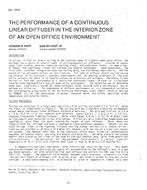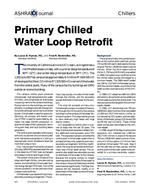A method of estimating cooling energy requirements by a direct expansion residential air conditioner operating solely on a thermostat is presented here . An air conditioner also dehumidifies while cooling, but the indoor humidity is not directly controlled. The indoor humidity reaches a balance point when the air conditioner operating sensible heat ratio is equal to the building cooling and dehumidification load sensible heat ratio. A method and computer algorithm is presented to estimate the resulting indoor humidity, the latent load removed by the air conditioner, and cooling energy required. It can account for the performance variation of the air conditioner at off-rated operating conditions by using polynomial correction functions. The methodology can be easily integrated with a simplified temperature-bin cooling load calculative procedure to predict resulting indoor humidity and energy consumption for each bin. An analysis of two residential buildings, each with two different air conditioners, is shown with the above methodology. The effects of various parameters that affect the air-conditioner dehumidification performance, the resulting indoor humidity, and energy consumption are discussed.
Citation: Symposium, ASHRAE Transactions, 1984, vol. 90, pt. 2B, Kansas City, MO
Product Details
- Published:
- 1984
- Number of Pages:
- 14
- File Size:
- 1 file , 1000 KB
- Product Code(s):
- D-KC-84-01-5


